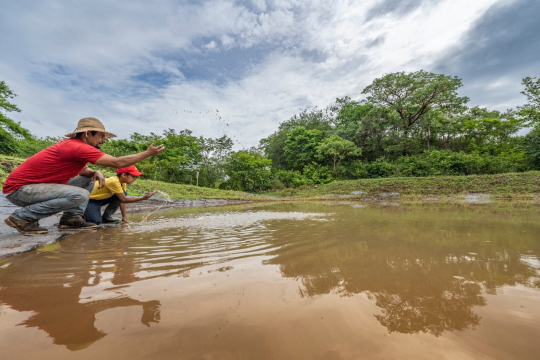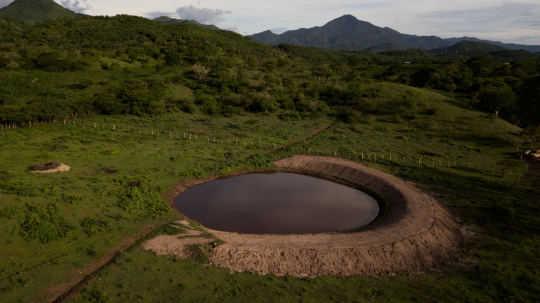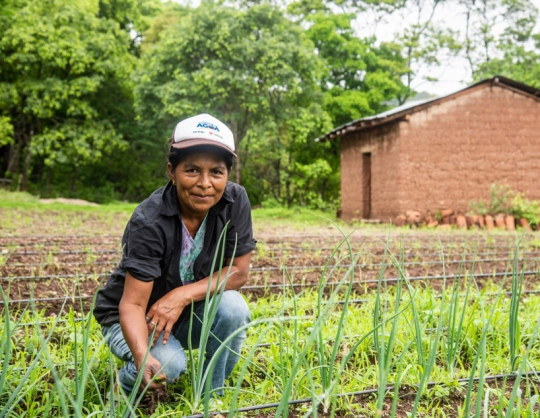Eduardo Pacay, Junior Researcher, and Roger Madrigal, EfD Central America Director, have evaluated the financial benefits of water harvesting infrastructure in Nicaragua. They looked at it from the perspective of the local communities' farmers. This is a part of the project Adaptation of agriculture to climate change through water harvesting in Nicaragua.
In total, 2,500 families of small and medium-sized farmers have benefited from the project. They established productive and agricultural systems on their land that are more resilient to climate change and improve their food security, like water reservoirs and irrigation technologies, among others, to improve their production.
"It is cost-effective to invest in water harvesting infrastructures to adapt to climate change. We can expect less access to water so water harvesting infrastructures increase the farmers' profitability when there are greater climatic impacts," said Eduardo Pacay during his dissertation in the International Forum of Experiences and Learnings of the Water Harvesting project.
Droughts affect livelihoods
The beneficiaries are families from ten communities in Nicaragua located in what is known as the dry corridor of Las Segovias. The communities are Ciudad Antigua and Monote, in the department of Nueva Segovia; Somoto, Totogalpa, Telpaneca, Palacagüina, Yalangüina, and San Lucas, in Madriz. Finally, Pueblo Nuevo and Condega, are in the department of Estelí.
"Nicaragua, like most of the countries in the Central America Dry Corridor, is a country highly vulnerable to climate variability, because droughts have affected the livelihoods of local populations," said Róger Madrigal.
Water harvesting is an adaptation measure that allows farmers to face long periods without rain but still with the capacity to produce crops, most of them part of the daily diet of Nicaraguan people. Also, it allows the families the option to continue raising livestock more stably and safely during the year.
About the project
The project is financed by the Swiss Cooperation in Central America (COSUDE), but implemented since 2019, by professionals of the host institution of EfD Central America, the Tropical Agricultural Higher Education Center (CATIE), with the collaboration of the Nicaraguan Institute of Agriculture Technology (INTA).
Written by: Marianela Argüello L.


